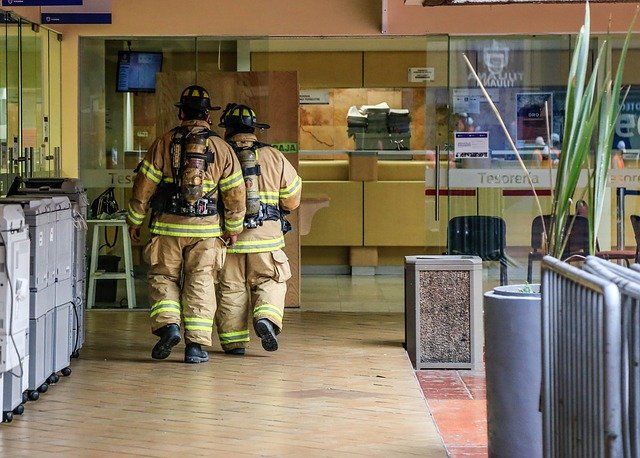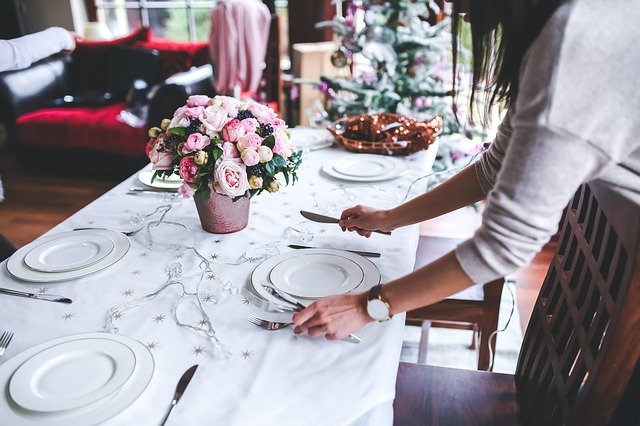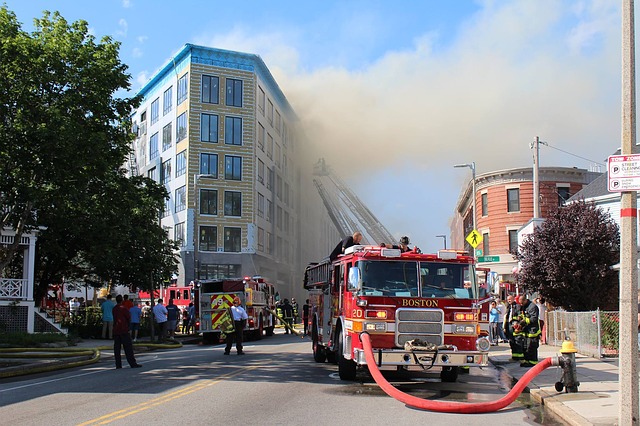.jpg)
The question of ‘how quickly does a building fire spread?’ is a pretty relative question, and it’s definitely dependent on certain factors within the building itself, such as the presence of flammable materials and the number of fire safety protections currently in place.
In the ‘average building’, the speed at which a small spark or ignition point can flare up into a fast-moving inferno is only 30 seconds.
More...

In the decades following the Health and Safety at Work etc. Act 1974, the UK has come a long way in regards to health and safety policies. We recognise the importance of making sure lives are being protected wherever possible, and that includes at work.
Businesses have a responsibility to ensure the physical wellbeing and safety of all of their staff, but how far does this stretch? What fire safety procedures are UK offices required to have in place?
More...

Christmas is a wonderful time of year when the family gets together, but unfortunately, it's also a time where we see an increased risk of fires in the home. With Christmas lights hung from the tree, a cosy fire in the hearth and a Christmas dinner cooking in the kitchen, there are a lot of opportunities for an accidental fire to start... especially if you've had a few drinks! Here are some harrowing statistics from the National Accident Helpline that put things into perspective:
- More than 500,000 people have had a fire-related accident in the home
- Roughly 1,000 people are injured by their Christmas tree every year
- Christmas tree lights injure nearly 350 people annually
- 50% of fire-related deaths occur over Christmas
- 16.7% of fire deaths in 2010 occurred in December
- 26 people died between 1997 and 2010 in the UK of electrocution while watering their Christmas tree with the lights on
As you can see, there is a real risk of house fires during the Christmas period, so it's important that you take precautions to keep your family safe. Here are a few things you can do to prevent a house fire in your home this Christmas.
1. Switch unattended Christmas lights off
2. Don't use Christmas lights with frayed or damaged cables
3. Move candles away from the Christmas tree, presents, wrapping paper & soft furnishings
4. Keep an eye on children, especially if they're near the fire, candles or the Christmas tree
5. Never hang decorations off lights, radiators or other heat sources
6. Don't be tempted to overload electrical sockets
7. Check that the cooker is switched off after you cook your Christmas dinner
Most importantly, ensure your fire alarm is working!
If there's one thing you take away from this blog, we implore you to check that your fire alarm is working this Christmas period. Your fire alarm should be checked year-round to ensure it's operating properly, otherwise, you could find yourself in a sticky situation if a fire occurred.
If you don't already have a fire alarm system in your home, we can help you. We build, install and maintain fire alarm systems in both residential and commercial properties. Find out more about our fire alarms below.
Fire Alarms from IDS Security >
Read More: Fire Safety During the COVID-19 Pandemic

As a business owner, it is your responsibility to keep your employees safe. Part of that responsibility includes conducting fire drills. Being proactive about fire safety in the workplace is not just an activity that we recommend you do, it's required by law. If you take a look at the fire safety regulations outlined by the UK government, they state that you must have appropriate fire detection and warning equipment on site. In addition, you should have fire fighting equipment that staff members know how to use, and it should be tested and maintained regularly.
What fire checks should I do?
- Ensure that all of your fire alarm systems are working. This includes fire detection and alarm equipment.
- Check that emergency lights that guide employees to the fire exists are working.
- Make a note of any faults you find and have them fixed as soon as possible.
- Ensure that all fire escapes are free from obstruction and easily accessible.
- Check that all automatic fire doors close correctly.
- Make sure there are fire exit signs in all the relevant places.
How often should we do a fire drill?
The government recommends that all businesses carry out at least one fire drill per year. Once completed, a record should be made to show that everyone in the business at that time took part in the drill. If a fire did occur and there was no record to show that you'd provided the necessary training, you could be held legally accountable for injuries that occur as a result of the fire.
What if we have a high turnover?
When new staff members join your business, they have no idea what your fire safety plan is, it's your responsibility to make sure that they can access it right away. This could include keeping maps, signs and instructions pinned up in a number of places around the workplace. If you have a period where a lot of new people join the business, you may want to conduct an additional fire drill to make sure everyone knows what to do in the event of a fire. The inconvenience of doing a fire drill is nothing in comparison to the guilt you'd feel if one of your staff members was unsure what to do during a fire.
Which places need to do fire drills more often?
There are some places, like schools, nurseries and care homes, where fire drills should be conducted multiple times a year. This helps the young and vulnerable to learn the processes and gives the staff an opportunity to highlight potential problems that could arise in a real-life situation. It's also important that if you take on members of staff with additional needs, for example, wheelchair users, that you adjust your fire drills and procedures accordingly.
How can IDS Security help me?
Here at IDS Security, we have years of experience helping all kinds of businesses make their premises fire safe. We offer a wide range of fire detection and alarm systems and we can even advise on the best equipment for you! We know that lots of business owners have a hard time assessing their own premises highlighting the most vulnerable places and deciding where to install sensors. We can help with all of that. All you have to do is get in touch!
Our Fire Alarm Systems >
Read More: Your COVID-19 Fire Safety Questions Answered

As a business owner, it is your responsibility to ensure that your business is kept safe and secure by following all of the required laws and regulations regarding fire safety.
Now, we understand that this is not an easy thing to do. With so much legal stuff to keep on top of, ensuring everything you do is 'by the book' can be a struggle, especially when it comes to health and safety and the various laws that come with it.
One of the most important areas in health and safety that can't be overlooked, however, is fire safety. Negligence here can lead to some very serious problems such as property damage and even death. So, it's extremely important that as a business owner, you ensure that your commercial fire alarms and fire safety measures are up to scratch.
To make things a little easier for you, IDS Security Systems is here to guide you through the requirements of your business fire alarm!
More...